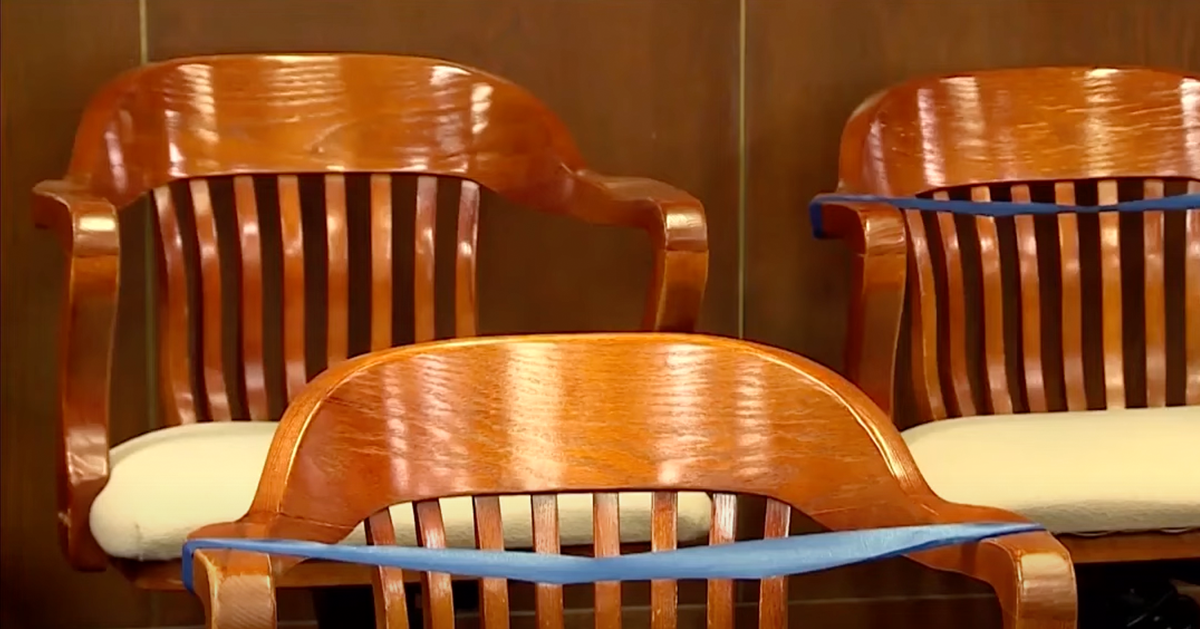DOJ Warns Iowa of Legal Action Over New Immigration Legislation
The Department of Justice (DOJ) has issued a warning to the state of Iowa, indicating that it might initiate legal proceedings if Iowa begins enforcing a controversial new immigration law.
The DOJ asserts that Senate File 2340, which criminalizes the presence in Iowa of individuals previously denied U.S. entry, infringes on federal authority and is unconstitutional, Newsmax reported.
Debate Heats Up Over State Versus Federal Jurisdiction
As tensions rise, Governor Reynolds has vigorously defended the new law. Additionally, she criticized the Biden Administration for what she perceives as a failure to adequately enforce existing immigration laws.
"The only reason we had to pass this law is because the Biden Administration refuses to enforce the laws already on the books," Reynolds stated. Furthermore, she asserted her commitment to upholding the rule of law and protecting the citizens of Iowa.
Iowa's Attorney General, Brenna Bird, echoed Reynolds' sentiments. Moreover, Bird's strong critique of the federal response to immigration highlighted a significant divergence in state and federal policy perspectives.
"Not only has Biden refused to enforce federal immigration laws and secure our border, he is now threatening to block states like Iowa from enforcing our own laws," Bird remarked.
The DOJ has given Iowa a deadline of May 7 to halt the enforcement of Senate File 2340. This ultimatum places Iowa at a critical juncture, potentially leading to a significant legal battle over states' rights and federal supremacy.
Local Enforcement Concerns Surface
Amid the larger national and state political confrontations, local concerns have also surfaced. Des Moines Police Chief Dana Wingert highlighted logistical challenges associated with the enforcement of the new state law.
Wingert pointed out the lack of resources and capability within local law enforcement to undertake immigration law enforcement, further complicating the situation.
"Simply stated, not only do we not have the resources to assume this additional task, we don't even have the ability to perform this function," said Chief Wingert. This statement sheds light on the practical difficulties that could arise from the implementation of the law at the local level.
The response from state officials has been one of defiance against federal criticism. Attorney General Bird's statement underscored this resistance: "Iowa will not back down and stand by as our state's safety hangs in the balance. If Biden refuses to stop the border invasion and keep our communities safe, Iowa will do the job for him."
Impending Legal Battle Could Define Federal-State Relations
This confrontation between Iowa and the federal government may define future interactions and legal frameworks concerning state authority over immigration matters.
The federal government's stance, as asserted by Boynton, that SF 2340 "violates the United States Constitution" sets a legal precedent that could influence other states contemplating similar measures.
The DOJ's imminent lawsuit, potential compliance by Iowa, or a contentious stand-off could ensue depending on Iowa's response to the federal ultimatum.
The outcome of this conflict could have lasting impacts on the balance of power between state and federal jurisdictions, particularly in areas of overlapping authority such as immigration.
The upcoming deadline will determine whether Iowa will retract its law or face legal challenges from the DOJ. As the deadline approaches, both state and federal entities prepare for a legal confrontation that could potentially escalate to the U.S. Supreme Court.
In summary, the DOJ has threatened to sue Iowa if it enforces Senate File 2340, a law making it a crime for denied U.S. entrants to reside in the state, challenging its compliance with federal supremacy.
Governor Reynolds stands firm on the necessity of the law, while local enforcement expresses logistical concerns. The unfolding situation could redefine state-federal dynamics and sets the stage for a significant legal showdown.





